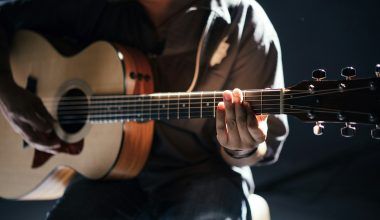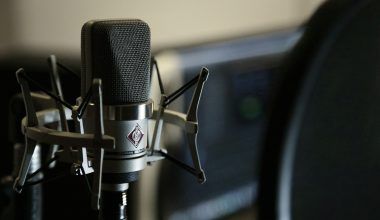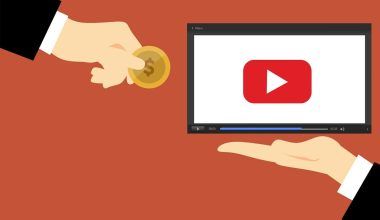Copyrighting your song is an essential step for any musician. It ensures that you, as the creator, have the exclusive rights to your work. Copyright protects your song from being used without your permission and allows you to earn royalties when it is used. In this blog, we will guide you through the process of getting your song copyrighted, explaining each step in simple terms. This guide is particularly helpful for artists in India but is also applicable to musicians worldwide.
Table of Contents
- What is Copyright?
- Why is Copyright Important?
- Steps to Copyright Your Song
- Understanding the Copyright Registration Process
- Costs Involved in Copyrighting a Song
- How Long Does Copyright Last?
- What to Do If Your Copyright Is Infringed?
- Tips for Protecting Your Music
- FAQs About Copyrighting a Song
- Glossary of Terms
What is Copyright?
Copyright is a legal protection given to creators of original works. This includes music, literature, and art. When you copyright a song, you have the exclusive right to reproduce, distribute, perform, and create derivative works from it. This means that no one else can use your song without your permission. Copyright law helps ensure that you, the creator, get the credit and financial benefits from your hard work.
Types of Works Protected by Copyright
Copyright law protects a wide range of creative works. These include:
- Literary works: Books, poems, articles, and essays.
- Musical works: Songs, compositions, and sound recordings.
- Dramatic works: Plays, scripts, and screenplays.
- Artistic works: Paintings, drawings, sculptures, and photographs.
- Cinematographic works: Films, documentaries, and videos.
Understanding what types of works can be copyrighted helps you see the broad scope of protection that copyright law offers.
Why is Copyright Important?
Copyright is crucial for several reasons:
- Protection: It protects your song from being used without your permission. This means that if someone uses your song without your consent, you have legal grounds to take action against them.
- Earnings: It allows you to earn royalties from your work. Whenever your song is played on the radio, streamed online, or used in a commercial, you are entitled to receive payment.
- Control: It gives you control over how your song is used. You can decide who can use your song and under what conditions.
- Legal Recourse: It provides a legal basis to take action if someone uses your song without permission. This can include seeking damages in court.
Real-Life Examples
Consider some real-life examples of why copyright is important:
- Example 1: A famous musician’s song is used in a commercial without permission. The musician can sue the company for copyright infringement and seek damages.
- Example 2: An independent artist’s song becomes popular on a streaming platform. Because the song is copyrighted, the artist earns royalties from every play.
Steps to Copyright Your Song
1. Create Your Song
Before you can copyright a song, you need to create it. This involves writing the lyrics, composing the music, and recording it. Ensure that your song is original and not copied from another work. Creativity is the first step in protecting your music.
2. Fix Your Song in a Tangible Form
To be eligible for copyright, your song must be fixed in a tangible form. This means it must be written down or recorded. This can be in the form of sheet music, a digital audio file, or a physical recording. The tangible form is crucial because it serves as evidence of your creation.
3. Register Your Copyright
While your song is automatically protected by copyright once it is fixed in a tangible form, registering your copyright with the appropriate government agency gives you additional legal benefits. In the United States, you register with the U.S. Copyright Office. In India, you register with the Copyright Office of India. Most countries have their own copyright offices or agencies.
4. Fill Out the Registration Form
Visit the official website of the copyright office in your country and fill out the registration form. This form will ask for information about the song, the creator, and the owner of the copyright. Make sure to provide accurate details.
5. Pay the Registration Fee
There is a fee for registering your song with the copyright office. This fee can vary, so check the current rates on their website. Payment can usually be made online. It’s a small investment for protecting your valuable creation.
6. Submit Your Work
After filling out the form and paying the fee, you need to submit a copy of your song to the copyright office. This can be done digitally or by mailing a physical copy. Follow the instructions provided by the copyright office for submission. Ensure your submission is complete and correct to avoid delays.
7. Receive Your Certificate of Registration
Once your application is processed, you will receive a Certificate of Registration. This certificate is proof that your song is registered and protected under copyright law. Keep this certificate safe as it is your official proof of ownership.
Understanding the Copyright Registration Process
The process of registering your copyright is straightforward but requires attention to detail. Here’s a step-by-step breakdown:
- Go to the Copyright Office’s Website: Start the process by visiting the official website of the copyright office in your country.
- Select “Register a Work”: Click on the option to register a work.
- Choose the Right Form: Select the form that applies to your type of work. For a song, you will typically use a form specific to musical works.
- Complete the Form: Fill in all required fields. This includes information about the song, the creator, and the copyright claimant.
- Review and Submit: Double-check your information before submitting the form. Pay the registration fee and upload or mail your song.
Tips for a Smooth Registration Process
- Double-Check Details: Ensure all information provided is accurate.
- Follow Instructions: Adhere to the submission guidelines to avoid delays.
- Keep Copies: Save copies of all forms and submissions for your records.
Costs Involved in Copyrighting a Song
The cost of copyrighting a song can vary depending on the country and the method of registration. Here are some typical costs:
- Online Registration: Fees can range from $35 to $55 in the United States.
- Paper Registration: Fees can be higher, approximately $85 in the United States.
In India, the fees are around INR 500 per work. Fees vary in other countries, so always check the latest rates on the copyright office’s website.
Additional Costs to Consider
- Legal Fees: If you choose to hire a lawyer to help with the process, this will incur additional costs.
- Additional Copies: You might need to pay for additional copies of your registration certificate.
How Long Does Copyright Last?
In most countries, including the United States and India, copyright protection lasts for the lifetime of the author plus 70 years. If the song has multiple authors, it lasts for 70 years after the last surviving author’s death. For works made for hire, the copyright lasts for 95 years from publication or 120 years from creation, whichever is shorter.
International Variations
- European Union: Similar to the U.S., lifetime plus 70 years.
- Canada: Lifetime plus 50 years.
- Australia: Lifetime plus 70 years (recently changed from 50 years).
Knowing the duration of copyright protection helps you understand how long your rights last and plan accordingly.
What to Do If Your Copyright Is Infringed?
If you believe your copyright has been infringed, here are steps you can take:
- Gather Evidence: Collect proof that your song has been used without permission.
- Contact the Infringer: Sometimes, a cease and desist letter can resolve the issue.
- File a Lawsuit: If necessary, you can file a lawsuit in court.
- Seek Legal Advice: Consider consulting with an attorney who specializes in copyright law.
Steps to Handle Infringement
- Cease and Desist Letter: A formal request to stop the infringing activity.
- Negotiation: Sometimes the issue can be resolved through negotiation.
- Court Action: If the infringement continues, you may need to take legal action.
Importance of Taking Action
Taking action against infringement is crucial to protect your rights and ensure that you receive the financial benefits of your work. Ignoring infringement can lead to further unauthorized use of your music.
Tips for Protecting Your Music
1. Register Your Works
As mentioned, registering your copyright provides additional legal benefits and proof of ownership.
2. Use Watermarks
For digital music, consider using watermarks to track and identify unauthorized use.
3. Monitor Your Music
Regularly check where and how your music is being used. This can be done using various online tools and services.
4. Educate Yourself
Stay informed about copyright laws and how they apply to your work. Understanding your rights is the first step in protecting them.
5. Network with Other Artists
Join music associations and networks. They can provide support, resources, and advice on protecting your music.
FAQs About Copyrighting a Song
Q1: Do I need to register my song to have copyright protection?
A1: No, your song is automatically protected once it is fixed in a tangible form. However, registration provides additional legal benefits.
Q2: Can I copyright a song for free?
A2: No, there is a fee to register your song with the Copyright Office.
Q3: How long does it take to get a copyright certificate?
A3: The processing time can vary, but it typically takes several months.
Q4: Can I copyright a song that I co-wrote with someone else?
A4: Yes, co-authors can jointly copyright a song.
Q5: What if someone uses my song without permission?
A5: You can take legal action against them for copyright infringement.
Glossary of Terms
Copyright: Legal protection for creators of original works.
Tangible Form: A physical or digital representation of a work.
Copyright Office: The government agency responsible for copyright registration in a country.
Certificate of Registration: Official proof of copyright registration.
Cease and Desist Letter: A document sent to an individual or business to stop purportedly illegal activity.
Copyrighting your song is a crucial step in protecting your work and ensuring you get paid for your creativity. By following the steps outlined in this guide, you can easily register your song and gain peace of mind knowing that your music is legally protected.
For further reading, explore these related articles:
- What is YouTube Content ID?
- Deliver My Tune’s Exciting New Services!
- Know the Ways to Get the Music Sync Licensing
- What is Performance Royalty?
- Different Types of Royalties
For additional resources on music marketing and distribution, visit Deliver My Tune.






